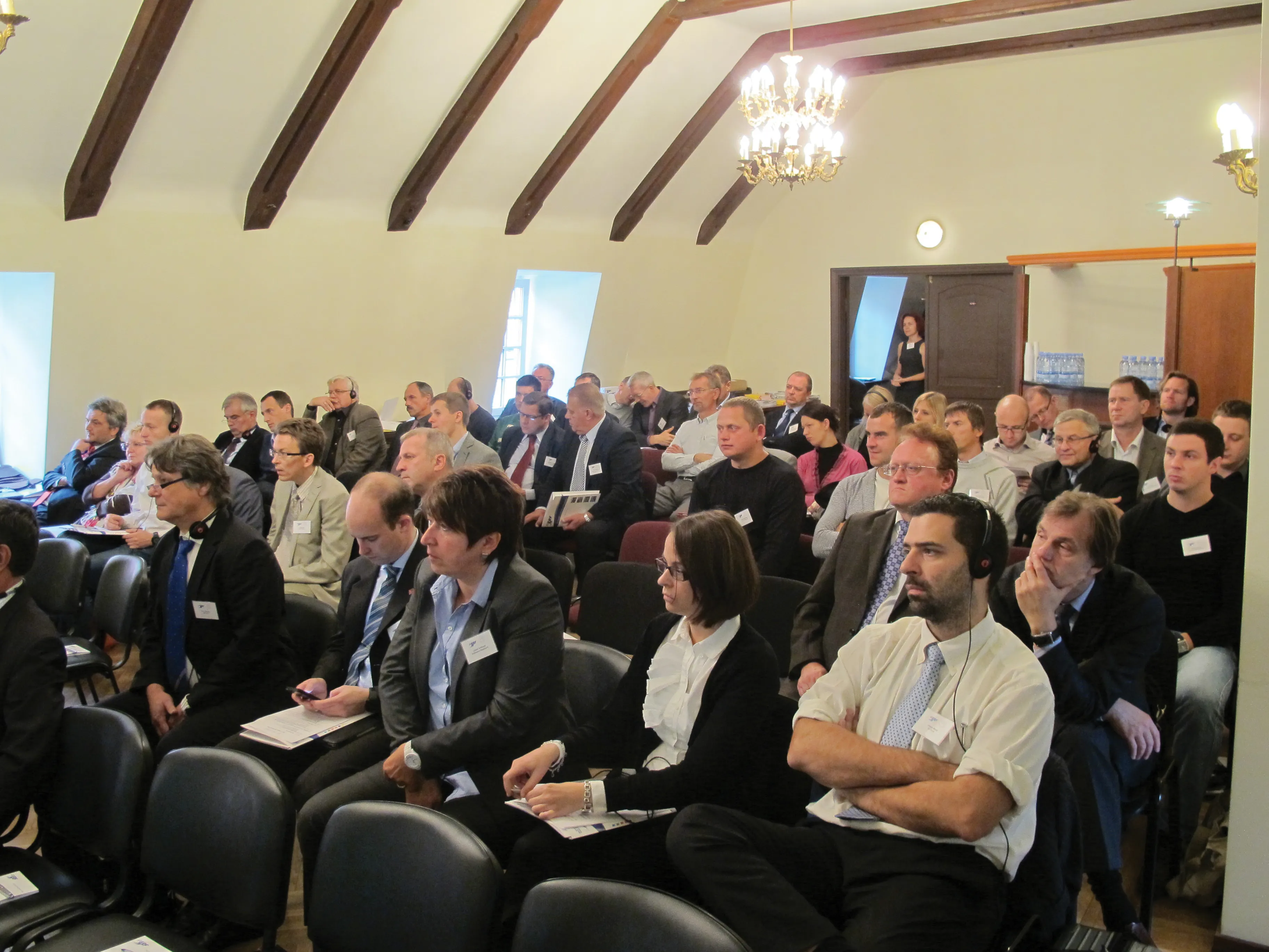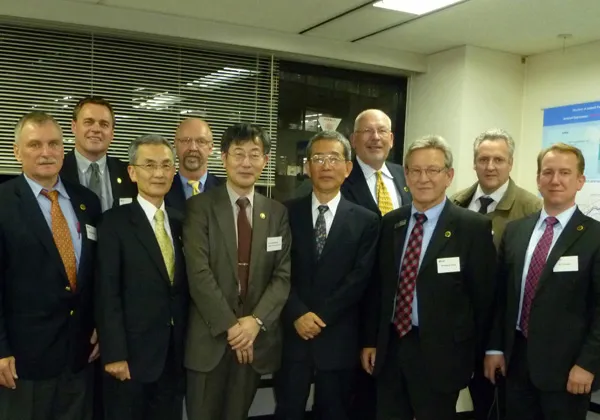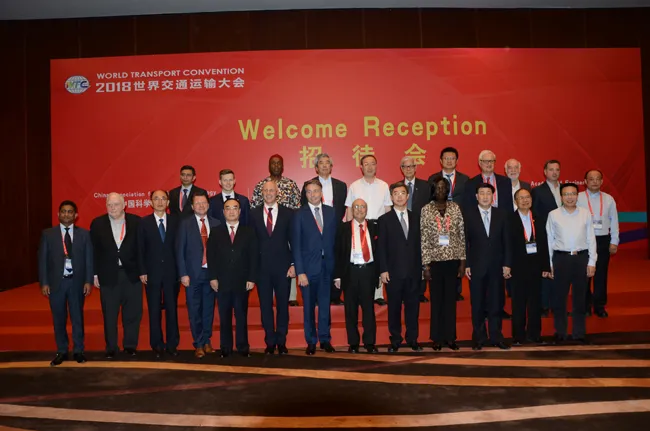ERF and Latvian State Road co-organise seminar on safer and sustainable roads Public road administrations are facing considerable challenges within Europe. In fact, the slogan ‘more with less’ captures their situation rather well as they are constantly expected to deliver higher levels of service against a backdrop of declining investment and increasing traffic volumes.
November 15, 2013
Read time: 4 mins

ERF and Latvian State Road co-organise seminar on safer and sustainable roads
Public road administrations are facing considerable challenges within Europe. In fact, the slogan ‘more with less’ captures their situation rather well as they are constantly expected to deliver higher levels of service against a backdrop of declining investment and increasing traffic volumes.
Operating within this challenging environment, the European industry is constantly trying to bring out new solutions that deliver value for money. In other words, enhance safety and prolong the life cycle as competitively as possible.
To better match solutions offered with customer’s needs, the ERF, with the cooperation of1274 Latvian State Roads, decided to organise a two day seminar on 24-25 September in Riga, Latvia.
Hosted within the premises of the Latvian State Roads, the event was split into three sessions respectively dedicated to safety, road maintenance and financing.
Following an opening welcome by Jãnis Lange, Chairman of the Board of Latvian State Roads and Christophe Nicodème, Director General of the ERF, and Kristine Malnaca, IRF Fellow in Latvia, participants were treated to a range of presentations related to road safety.
While significant progress has been achieved in the last decade, road causalities and injuries still remain a challenge that needs to be taken seriously. Cost-effective solutions such as road barriers, road markings and signs exist now that can make a difference, yet, lack of clear information often hampers road administrations from making the optimal choices.
This is why the first day was devoted to exchanging good practices on how safety equipment can be best utilised to improve passive and active safety as well as to improve safety in work zones, which represent a high-risk area for both workers and drivers.
After the end of the first day, speakers gathered for an informal dinner offered by the Latvian State Roads. At the same time, participants had the opportunity to visit a night demonstration organised by152 3M Latvia.
Duly relaxed, participants reconvened on Wednesday for the thematic sessions on road maintenance and financing. Facing ever tighter budgets, road administrations are constantly looking for solutions and technologies that can extend the roadworthiness of the road infrastructure. Moreover, given the harsh winters experienced in Latvia (where the average temperature is -6°C and on cold days can reach even -30°C), winter maintenance techniques are indispensable. To illustrate these points, Viktors Haritonovs from the Technical University of Riga and Otto Kärki from ELY centre in Finland were invited to present how low quality aggregates can be used to create high performance asphalt/concrete and how Finland manages to guarantee a high quality road network in spite of ITS prolonged and harsh winter. To conclude this session, representatives from178 Caterpillar and Celu Parvalde showed how road construction equipment can be optimally deployed in road works.
The last session was devoted to the thorny issue of road financing. Given that the whole of Europe is facing a significant financing gap in road investment, there is a need for innovative solutions that can secure the necessary funds so that Europe’s roads can continue to provide a value for Europe’s economy and society.
After a brief overview of the EU context, Mr Antonio Pinelo from the Portuguese Road Association presented the experience of the development of the Portuguese road network. As a follow up, irts Augstkalns from Latvian State Roads presented the situation in Latvia and highlighted the important challenges facing the administration. Last but not least, Gints Alberiš from Latvian State Roads provided insights into the application of public procurement rules for road projects in Latvia.
The event was closed by a joint intervention of Jãnis Lange, Chairman of the Board of Latvian State Roads, Kristine
Malnaca, IRF Fellow in Latvia and Christophe Nicodème, Director General of the ERF. Acknowledging the importance of exchanging experiences within this challenging environment, they vowed to continue to explore way of mutual cooperation for the benefit of Europe’s citizens.
Public road administrations are facing considerable challenges within Europe. In fact, the slogan ‘more with less’ captures their situation rather well as they are constantly expected to deliver higher levels of service against a backdrop of declining investment and increasing traffic volumes.
Operating within this challenging environment, the European industry is constantly trying to bring out new solutions that deliver value for money. In other words, enhance safety and prolong the life cycle as competitively as possible.
To better match solutions offered with customer’s needs, the ERF, with the cooperation of
Hosted within the premises of the Latvian State Roads, the event was split into three sessions respectively dedicated to safety, road maintenance and financing.
Following an opening welcome by Jãnis Lange, Chairman of the Board of Latvian State Roads and Christophe Nicodème, Director General of the ERF, and Kristine Malnaca, IRF Fellow in Latvia, participants were treated to a range of presentations related to road safety.
While significant progress has been achieved in the last decade, road causalities and injuries still remain a challenge that needs to be taken seriously. Cost-effective solutions such as road barriers, road markings and signs exist now that can make a difference, yet, lack of clear information often hampers road administrations from making the optimal choices.
This is why the first day was devoted to exchanging good practices on how safety equipment can be best utilised to improve passive and active safety as well as to improve safety in work zones, which represent a high-risk area for both workers and drivers.
After the end of the first day, speakers gathered for an informal dinner offered by the Latvian State Roads. At the same time, participants had the opportunity to visit a night demonstration organised by
Duly relaxed, participants reconvened on Wednesday for the thematic sessions on road maintenance and financing. Facing ever tighter budgets, road administrations are constantly looking for solutions and technologies that can extend the roadworthiness of the road infrastructure. Moreover, given the harsh winters experienced in Latvia (where the average temperature is -6°C and on cold days can reach even -30°C), winter maintenance techniques are indispensable. To illustrate these points, Viktors Haritonovs from the Technical University of Riga and Otto Kärki from ELY centre in Finland were invited to present how low quality aggregates can be used to create high performance asphalt/concrete and how Finland manages to guarantee a high quality road network in spite of ITS prolonged and harsh winter. To conclude this session, representatives from
The last session was devoted to the thorny issue of road financing. Given that the whole of Europe is facing a significant financing gap in road investment, there is a need for innovative solutions that can secure the necessary funds so that Europe’s roads can continue to provide a value for Europe’s economy and society.
After a brief overview of the EU context, Mr Antonio Pinelo from the Portuguese Road Association presented the experience of the development of the Portuguese road network. As a follow up, irts Augstkalns from Latvian State Roads presented the situation in Latvia and highlighted the important challenges facing the administration. Last but not least, Gints Alberiš from Latvian State Roads provided insights into the application of public procurement rules for road projects in Latvia.
The event was closed by a joint intervention of Jãnis Lange, Chairman of the Board of Latvian State Roads, Kristine
Malnaca, IRF Fellow in Latvia and Christophe Nicodème, Director General of the ERF. Acknowledging the importance of exchanging experiences within this challenging environment, they vowed to continue to explore way of mutual cooperation for the benefit of Europe’s citizens.








